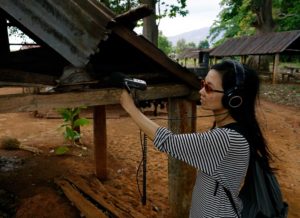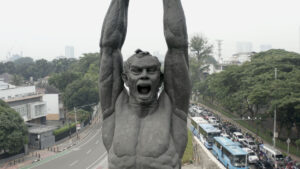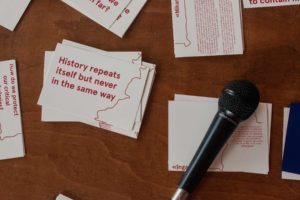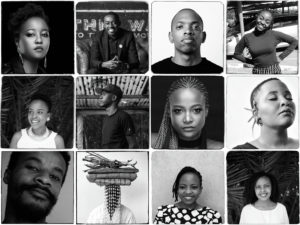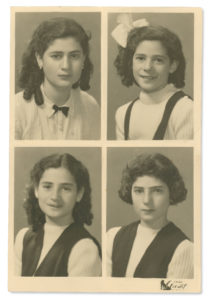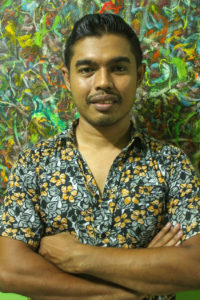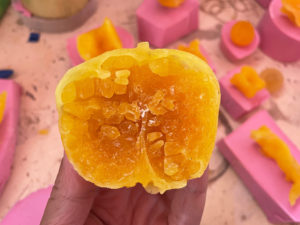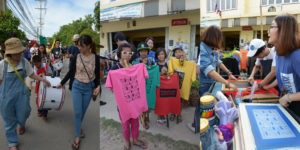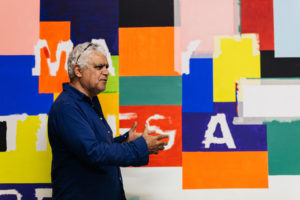Serigrafistas queer (queer silk screen printers) is a “non-group”. Since 2007 they have been holding meetings every year, where slogans are discussed, and meshes and stencils are assembled to make prints for the LGBTTTIQ+ Pride parades and feminist protest that take place in different cities in Argentina every year.
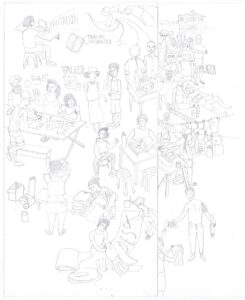
Serigrafistas queer, drawing, 2016, ASK. Archivo Serigrafistas Kuir, courtesy Serigrafistas queer
Starting in 2013, Serigrafistas queer have been building the Archivo Serigrafistas Queer (ASK) in the Boedo neighborhood of Buenos Aires, where meshes and slogans are openly available and thus lose, in their own use, any indication of ownership. “Silk screening is not just printing, it is also finding ourselves. By being so many and so elusive, they can’t even name us,” Serigrafistas queer say about their practice.
From 2017, Serigrafistas queer have been carrying out workshops for organizations, collectives, and groups. The workshops move silk-screening away from its status as technique or from printing as the final aim, and instead concentrate on everything that happens in the process: collaborations, sharing, carrying out specific tasks, the ideas that generate new projects. In this sense, silk-screening is a platform for posters, T-shirts, editions, flags, and other media, as well as contexts and alliances. Student groups, political and social organizations, university departments, and recently formed assemblies have participated in the workshops. At the end of 2019, Serigrafistas queer launched their first publishing project, Papel Cuis, with the poetry collection Me quedé en Karina (I Stayed in Karina) by Karina Pintarelli.
Rancho Cuis (2022), Serigrafistas queer’s contribution to documenta fifteen, continues their preoccupation with collective care, learning, and sharing. Rancho is slang for precarious, generally rural, living spaces, and ranchear is the verb that is used to describe their habitation. Argentinian social protest has semantically modified these terms. In 2018, for example, protesters would ranchear, or spend time together, in makeshift shelters while awaiting the results of congressional debates. Ranchear, then, means attending to each other without expectation of any final product.
Rancho Cuis is manifested through different interventions: The first is a construction project taking place in a rural area outside of Buenos Aires. The second is practical and economic: place-making activities through collective learning and intersectional healing with local organizations and collectives working on issues from gender violence to land rights. The third aspect is editorial, translating the experiences of Rancho Cuis in Argentina to a smaller iteration in Kassel, built behind Sandershaus, its form and function evolving during the 100-day event in response to the activities and needs generated through inhabiting the space. Apart from hosting Serigrafista queer’s archives, the ranch’s construction continues to evolve based on the interactions between members of Serigrafistas queer and visitors, using the materials generated through silk-screen printing and other spontaneous activities.
Invited participants
Cecilia Campos
Ana Carolina Fernández Alonso
Mariela Gouiric
Guillermina Mongan
Murillo
Victoria Musotto Delrieux
Mariela Paula Scafati
Moyi Schwartzer
